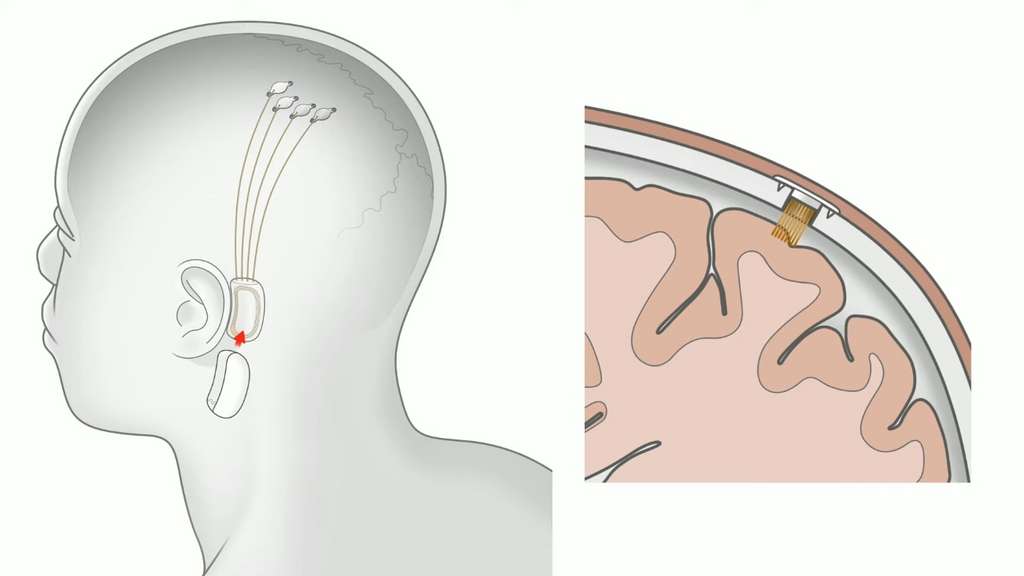The social network thinks that within a decade, writing using only his brain will become common.
A team of US researchers funded by Facebook has managed to translate brain activity into words via algorithms, another step towards the ambition shared by other companies, such as Elon Musk’s, to create a direct link between the human brain and the machines.
Scientists at California University UCSF published this week a study showing their progress in creating a brain-computer interface: the activity of neurons is transmitted to the machine through implants, and decoded by algorithms, in a specific context (a limited choice of questions and answers). Ultimately, the ambition would be to use a less restrictive method than implants, such as a pair of augmented reality glasses, equipped with sensors and controlled by thought.
Why Elon Musk and Mark Zuckerberg are interested in our brains?
” In the next ten years, the ability to type directly from our brain may be considered normal, ” said Facebook Tuesday in an online article on the project launched two years ago. ” Not so long ago, it was science fiction. Now, this prospect seems attainable. Elon Musk, the whimsical boss of Tesla and Space X, struck the spirits ten days ago claiming that his start-up Neuralink had achieved an experiment in which a monkey was controlling a computer directly from his brain. The company is expected to begin testing on humans as early as 2020, in order to fight certain diseases affecting the brain or spinal cord.

A health goal that also guides the UCSF team’s research: to make people speechless because of paralysis, spinal cord injuries or neurodegenerative diseases.
” At this point, the paralyzed patients with loss of speech can only use technologies based on movements of the eye or muscle twitching slowly to spell words on a screen, said Eddie Chang, a neuroscientist at the California University. Yet, in many cases, the ability to express themselves is always present in their brains. We just need the technology to enable them to use it smoothly.“
The study published in the journal Nature Communications details how the scientists managed to train the machine to translate the signals received through the implants, while the volunteers spoke aloud. The artificial intelligence system was guided by a context of multiple-choice questions posed to individuals. The “Steno project” is studying the possibility of making a connected accessory to tap on a screen simply by imagining talking in his head. It is funded by a technology giant (Facebook Reality Labs) lab doing research on augmented and virtual reality technologies.